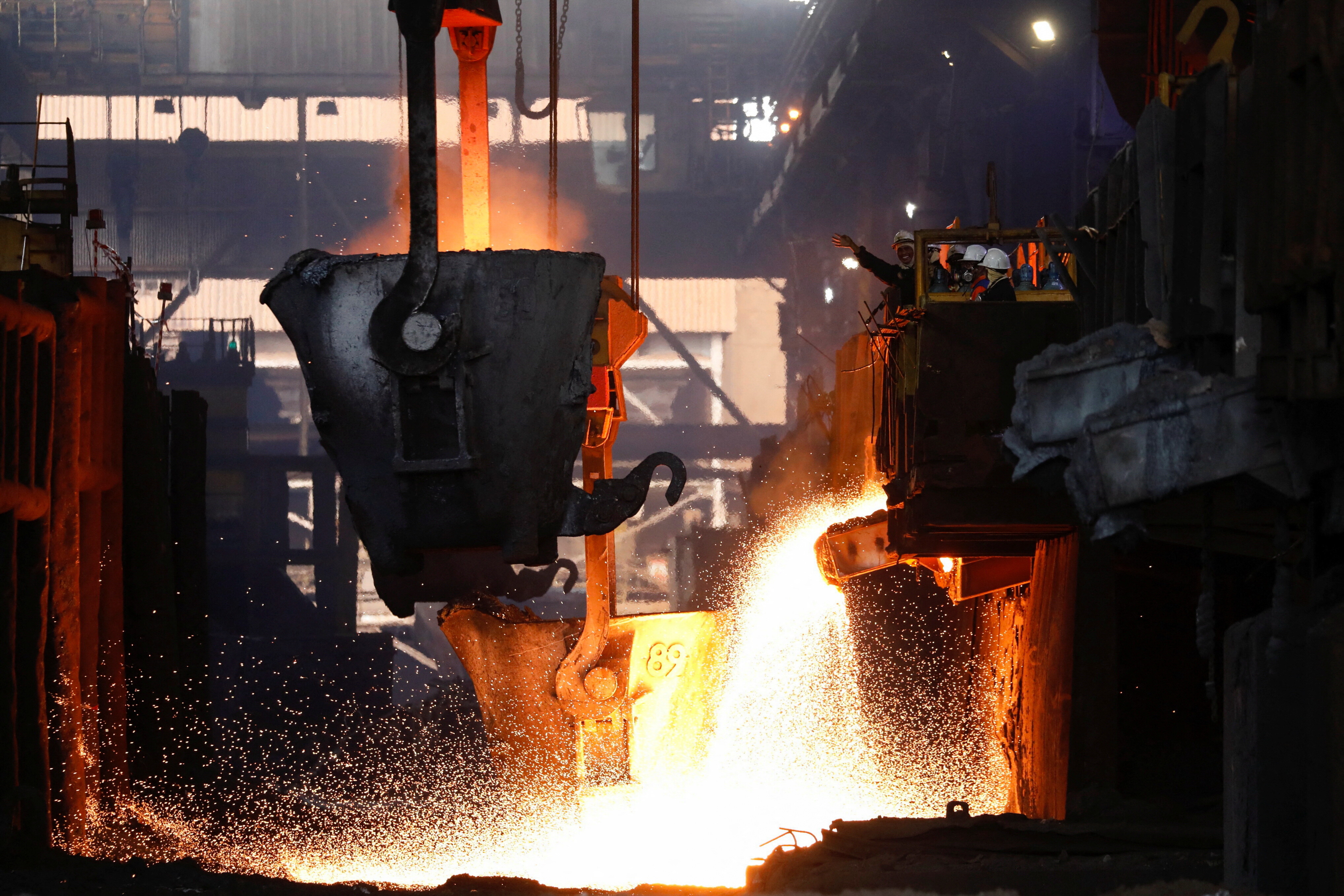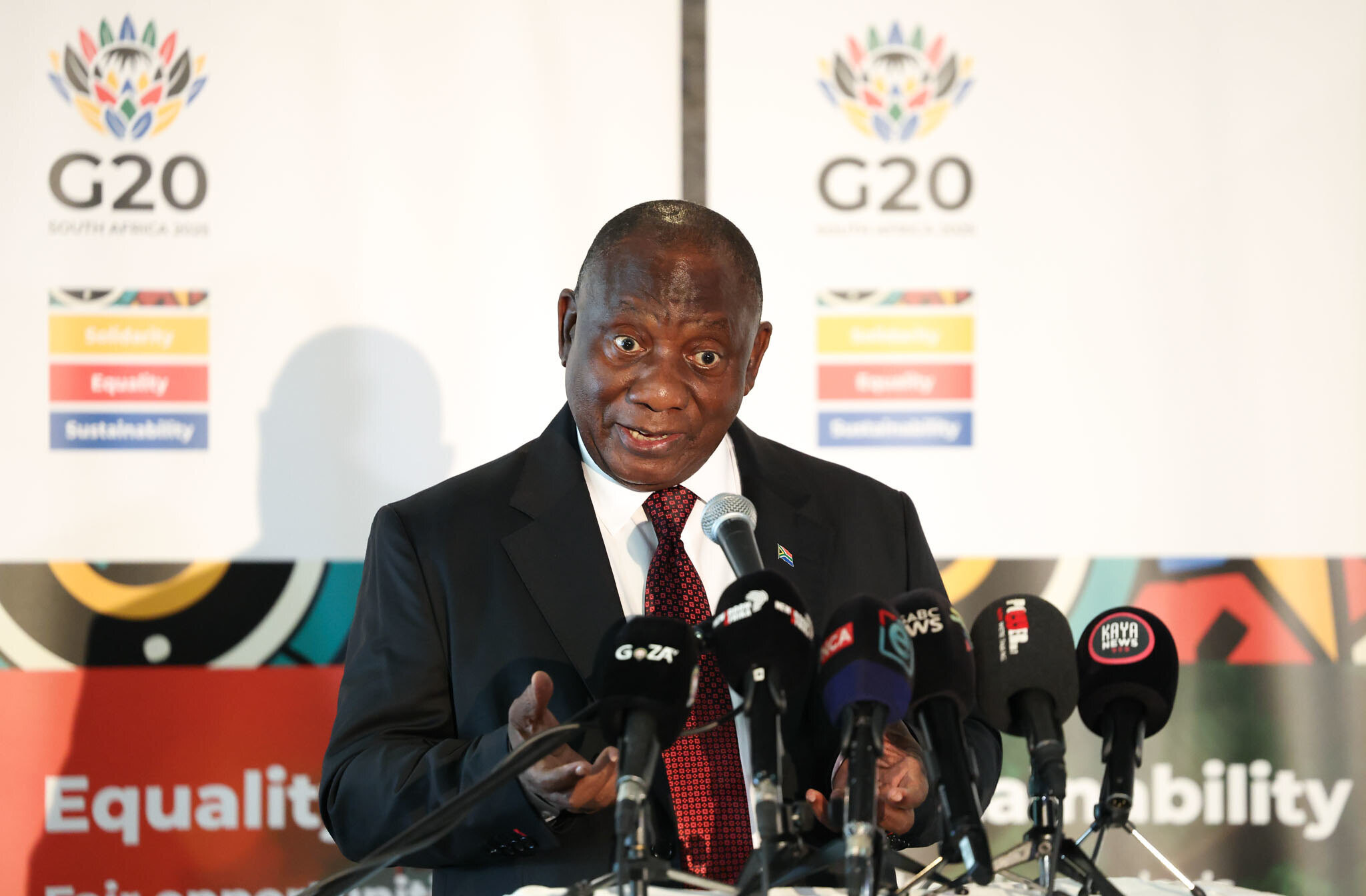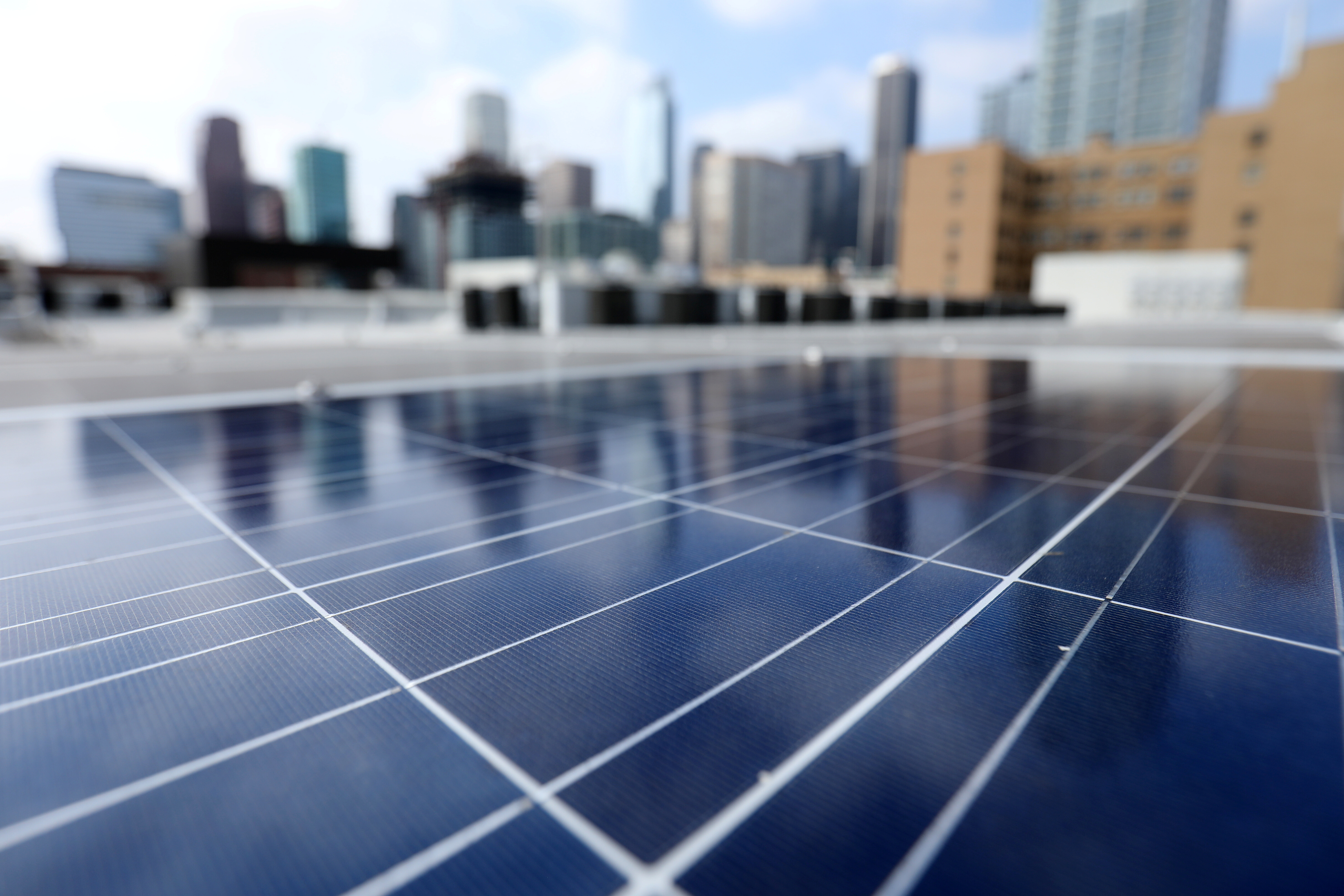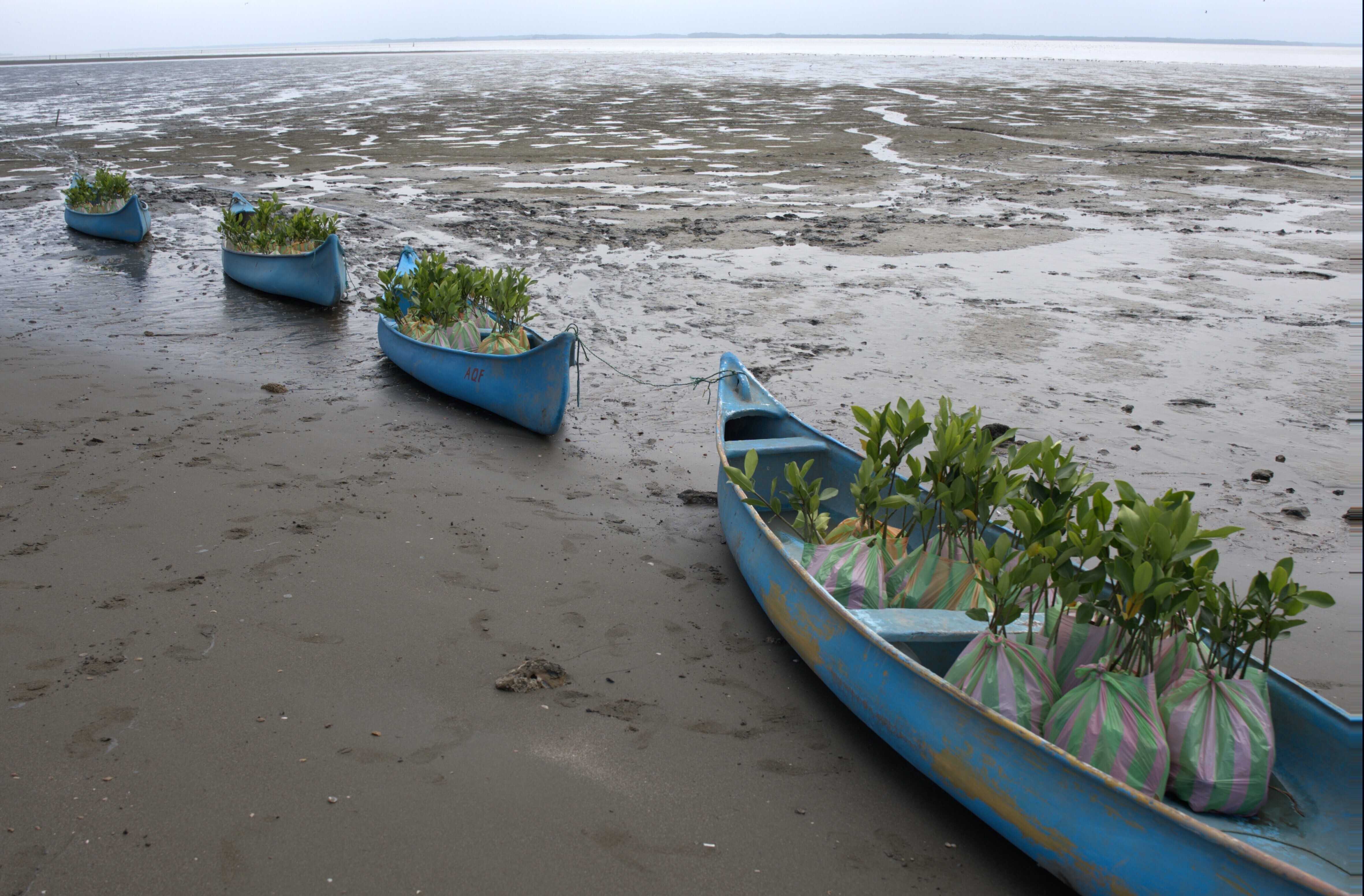4 ways the Middle East can become more resilient in 2022

Here's how to create a more inclusive, sustainable and resilient MENA region. Image: REUTERS
- The economic recovery from COVID-19 is the first priority in the Middle East.
- Addressing climate change and broadening the Fourth Industrial Revolution can shape an effective recovery.
- Advancing geopolitical dialogue is critical to a sustainable and resilient MENA region.
The Middle East is still trying to chart its own path in the context of global geopolitical shifts, which are further compounded by the disruptive impact of the COVID-19 pandemic. Indeed, the IMF projects the Middle East will expand by 4.1% in 2022, but the reality is that with fiscal and monetary space narrowing in most economies, the recovery remains uneven. For instance, 10 countries in the Middle East and North Africa (MENA) region have vaccinated less than 10% of their populations, which is likely to drive the virus’s resurgence in the region.
Against this backdrop, it will be crucial to improve regional coordination and dialogue. Here are four concrete ways in which regional stakeholders can work together to shape an effective recovery and create a more inclusive, sustainable and resilient MENA region.
1. Coordinating a robust and inclusive recovery
The first priority is the economic recovery from COVID-19, given the resulting increase in public debt-to-GDP ratios in the region. It is imperative for governments to coordinate recovery efforts by proactively involving the private sector to ensure that their interventions have maximum effect.
In an effort to facilitate this process, the World Economic Forum has convened the Regional Action Group for the Middle East and North Africa on a regular basis. This group consists of more than 60 Ministers and CEOs from the region and works to enable policy coordination and exchange. In April 2020, the group endorsed the Principles for Stakeholder Capitalism, committing its members to embrace an inclusive and sustainable recovery. The Forum has also organized several Country Strategy Dialogues, allowing heads of state or government to exchange insights directly with business leaders in view of shaping their country’s policies concerning the recovery. During the course of 2021, we have convened such dialogues on Saudi Arabia, Egypt and Israel and are planning dialogues with additional countries for the year ahead.
These dialogues are supported by existing collaborations in several countries through the Forum’s Skills and Closing the Gender Gap Accelerators. Operating in Egypt, Jordan, Oman, Bahrain and the UAE, these accelerators bring together leaders from government and relevant companies to craft national strategies to equip citizens with the skills needed to succeed in the labour markets of the future, and to remove obstacles to the equal integration of women in the workplace. According to the Forum’s Gender Gap Report, all things staying equal, it will take 142 years to close the gender gap in the region. We are looking for additional partnership opportunities to further consolidate the progress made by pioneering countries in the region.
2. Working towards a green MENA region
The Middle East is responsible for around 8% of global carbon emissions, but it is warming at twice the rate of the rest of the world. For the first time, the average citizen is starting to experience the destructive aftershocks of climate change, for instance droughts in Iran and Iraq, floods in the Gulf and creeping desertification across the region. This rapid environmental degradation is countered by the fact that the region is optimally positioned to become a leader in renewable energy such as wind and solar, as well as in hydrogen production and export.
Just like COVID-19, the effects of climate change do not stop at national borders. A regional framework for addressing its causes will be crucial to avoid “beggar-thy-neighbour” scenarios. Having Egypt and the UAE host COP27 and COP28, respectively, will help to ensure that the fight against climate change becomes a cornerstone of policymaking in the Middle East.
The World Economic Forum has offered its support to both countries to ensure that the private sector is brought on board at this important juncture. Additionally, the Forum plans to convene for the first time a “Sustainability Action Group for MENA”, which will bring together leaders from government and business to collaborate on innovative solutions to tackle the region’s environmental challenges.
3. Broadening the Fourth Industrial Revolution
The third area of collaboration is technology – one of the key sectors were trust needs to be rebuilt. The MENA region has witnessed a flurry of activities in this respect, exemplified by Saudi Arabia’s and the UAE’s adoption of personal data protection laws last fall. Given the MENA region’s young and tech-savvy population, its perennial youth unemployment problem and its adequate digital infrastructure, the tech sector has the potential to become a transformative growth pillar for the future economy of the Middle East.
In an effort to support this dynamic, the Forum has established Affiliate Centres for the Fourth Industrial Revolution (4IR) in the UAE, Israel and Saudi Arabia. The centres facilitate tapping global expertise, access to the insights of local and global companies and intra-governmental coordination to regulate emerging technologies in a human-centric way, while at the same time providing an environment that allows innovation to flourish. For example, the 4IR Centre in Israel has supported the Ministries of Transportation and Justice in shaping a national regulatory framework for the trials and operations of autonomous vehicles (now pending approval by the parliament). We are looking forward to further expanding our network of C4IR centres in the region, including in Qatar, Bahrain and Egypt.
Additionally, since medium-sized countries are more competitive in the economy when they join forces, we are planning to launch a project in collaboration with the Digital Cooperation Organization to improve the region’s attractiveness to Foreign Direct Investment in the digital economy.
What is the World Economic Forum doing about the Fourth Industrial Revolution?
4. Advancing geopolitical dialogue
Finally, the Middle East will not reach its full economic potential without a stable geopolitical environment. As such, the instability that blights half of its countries, from Afghanistan to Syria, Libya to Lebanon, needs to be addressed to avoid spillover effects. Countries hosting refugees are providing a global public service and should therefore receive additional support, not only financial but also in access to markets and technology. The Abraham Accords, Qatar’s mediation role on Afghanistan, the Saudi-Iranian dialogue and the Emirati-Turkish rapprochement are among positive developments in this respect.
As such, the Forum looks to convene informal dialogues on some of the MENA region’s major fault-lines, to support mediation efforts and advance peace and reconciliation through economic incentives. We also plan to convene our community of Palestinian and Israeli business leaders, who advocate for a two-state solution, and who are working together to bridge the digital divide between the two sides in the context of COVID-19.
Don't miss any update on this topic
Create a free account and access your personalized content collection with our latest publications and analyses.
License and Republishing
World Economic Forum articles may be republished in accordance with the Creative Commons Attribution-NonCommercial-NoDerivatives 4.0 International Public License, and in accordance with our Terms of Use.
The views expressed in this article are those of the author alone and not the World Economic Forum.
Stay up to date:
Middle East and North Africa
Forum Stories newsletter
Bringing you weekly curated insights and analysis on the global issues that matter.
More on Global CooperationSee all
Mahmoud Mohieldin and Vera Songwe
November 20, 2025







